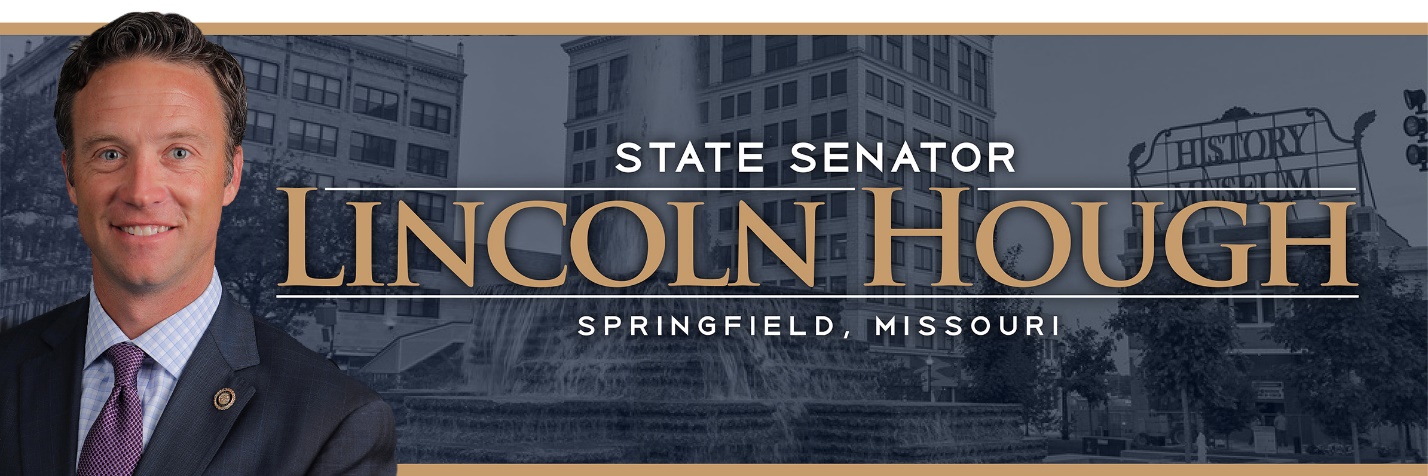Sen. Lincoln Hough's Legislative Column for May 21, 2024
Tuesday, May 21, 2024

FOR IMMEDIATE RELEASE: May 21, 2024
Moving Missouri Forward as a Leader in Mental Health Treatment
Once again, we have come to the end of our annual legislative session during Mental Health Awareness Month. While the struggles of session come to an end, there are many whose struggles never end, an endless fight against a sometimes-invisible disease known simply as severe mental illness or substance-use disorder.
Our goal in Missouri, especially those of us who serve on the Senate Appropriations Committee, is to continue making transformative investments in access to care, state-of-the-art treatment and life-changing answers for those in crises. I want to share with readers how we continue to use their tax dollars for those struggling with their mental health.
Earlier this month, we completed the fiscal year 2025 budget for the state of Missouri. We included increased investments specifically aimed at connecting our state’s resources across the broad spectrum of hospitals, law enforcement and mental health care providers. By providing up-front, immediate treatment through our crisis center model, we have cut costs and freed up countless hours for law enforcement officials and emergency room personnel.
Understanding the reality that law enforcement and hospitals are not the best or most cost-effective treatment providers for those experiencing a behavioral health crisis has been key. We must commit ourselves to being proper stewards of the taxpayer’s dollars while providing the best treatment possible in the surroundings most suitable for that individual. Too often, these crises have been pushed to jails or emergency rooms, resulting in extremely high costs to the taxpayers but not resulting in true mental health care.
Key investments to fix this include:
- $16 million in ongoing dollars for a statewide network of behavioral health crisis centers (BHCCs) that focus their care on individuals in crisis through the placement of mental health professionals available to triage the situation, provide immediate care to stabilize the crisis and connect the person to the appropriate follow-up treatment. This frees law enforcement and ERs to do the important job of serving our communities.
- $10.4 million for two recovery high schools in Missouri. These specialized schools offer a dual approach, allowing students to concurrently work on their substance use disorder program while pursuing their high school diploma. Early treatment for our youth is paramount for reducing the instances of a life-long battle with substance-use disorder.
- $4 million for increased statewide access to community mental health providers. This allows ambulance services in Missouri to be reimbursed when someone in a mental health crisis is transported to a BHCC.
- $4.2 million to be used to purchase and expand transcranial magnetic stimulation (eTMS) equipment services. This cutting-edge equipment for individuals suffering from PTSD will be spread statewide and provide services for our military, law enforcement and other emergency personnel in need of treatment.
These are just a few of the services and investments that have already saved taxpayers millions of dollars. The need for mental health and substance-use services will not go away anytime soon. I, and many of my colleagues, are committed to continuing to provide the necessary resources needed to fight this silent epidemic.